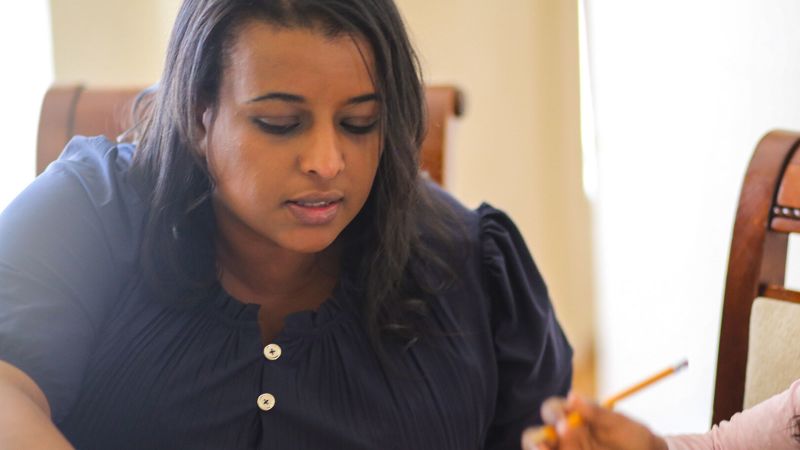In a significant legal battle, a parent named Billy Moges is actively contesting a policy enforced by the Montgomery County Public Schools (MCPS) regarding the reading of LGBTQ+ themed materials in elementary schools. Moges, one of the Christian parents involved in this suit against Maryland’s largest school district, asserts that exposing children to specific ideas tied to the LGBTQ+ community at a young age conflicts with their readiness for such discussions. Both Moges and other parents involved believe that the exposure compromises the sanctity of their children’s upbringing rooted in religious values. “We have no hate for anyone,” emphasizes Moges, highlighting that the core of their contention is about parental rights and beliefs concerning educational content.
On the other side of this contentious dispute, officials from the Montgomery County Public Schools argue that granting the demands of these parents would create an unmanageable environment for educators. They further assert that requiring teachers to preemptively warn parents about any classroom material that may clash with their personal beliefs poses an administrative nightmare, introducing significant challenges to educational practices and the complexity of maintaining a curriculum inclusive for all students, regardless of their backgrounds or beliefs.
The Supreme Court’s involvement has elevated the stakes, as the case represents one of the most pertinent religious appeals the justices have faced in recent years. The arguments presented will grapple with critical issues like the rights of parents to influence school curricula, the rights of students to engage with diverse narratives, and the overarching role of faith in public education. Notably, the plaintiffs’ case draws upon a 1972 precedent from Wisconsin v. Yoder that allowed Amish families to withdraw their children from school after the eighth grade in adherence to their religious beliefs, showcasing the complexities in balancing individual rights against broader educational standards.
The backing of the conservative majority of the current Supreme Court, known for siding with religious entities in previous rulings, adds an intriguing layer to the proceedings. Recent cases have seen rulings favoring religious practices in public settings, suggesting potential leanings that may influence the decision-making process regarding this appeal. Moges further elaborates on a proposed framework whereby parents with religious objections could opt their children out of specific readings, reminiscent of existing guidelines that allow exclusion from sex education in several states.
Historically, Montgomery County schools permitted such opt-outs; however, the district later denounced the approach as “unworkable.” Instances of substantial absenteeism during lessons involving opt-out students led to claims of disruption in the learning atmosphere, as highlighted in brief submissions to the court. The school district contends that the educational engagement must remain cohesive and consistent, offering a balanced and enriching backdrop for all its students.
Central to the curriculum in question are books like “Prince & Knight,” which narrates a love story between a prince and a knight, and “Born Ready,” which sensitively addresses gender identity through the journey of a young character. Both emphasize acceptance, diversity, and the importance of love in understanding identity. The district maintains that such titles are nuanced inclusions, fitting into a broader curative framework of educational materials rather than being isolated instances.
Moges and like-minded parents insist that these narratives are not merely tucked away on shelves waiting to be discovered, but actively integrated into classroom discussions, fueling their concerns about the impact on their children’s values. The case has sparked debate over religious freedom versus educational inclusivity, deepening the national discourse on how best to navigate complex social issues within public education.
The legal interpretations hinge upon the intricate balance of establishing coercion versus simply exposing students to diverse beliefs and narratives within the educational landscape. This affects interpretations on whether experiencing LGBTQ+ storylines in literature constitutes a burden on parental religious rights. As arguments unfold, both sides gear up to present their case, illuminating a broader conversation about fundamental rights to freedom of expression, education, and religious belief within the fabric of a pluralistic society.
Support for the school district mounts from various organizations, emphasizing the essential role that such inclusivity serves in fostering a supportive learning environment. Educators and advocates argue that a curriculum designed to reflect the diversity of society is fundamental to nurturing a well-rounded, tolerant student body capable of thriving in a heterogeneous world. Consequently, as the Supreme Court prepares to weigh in, the implications of their decision could reverberate beyond Montgomery County, potentially reshaping educational landscapes nationwide regarding parental rights and LGBTQ+ inclusivity in schools.



